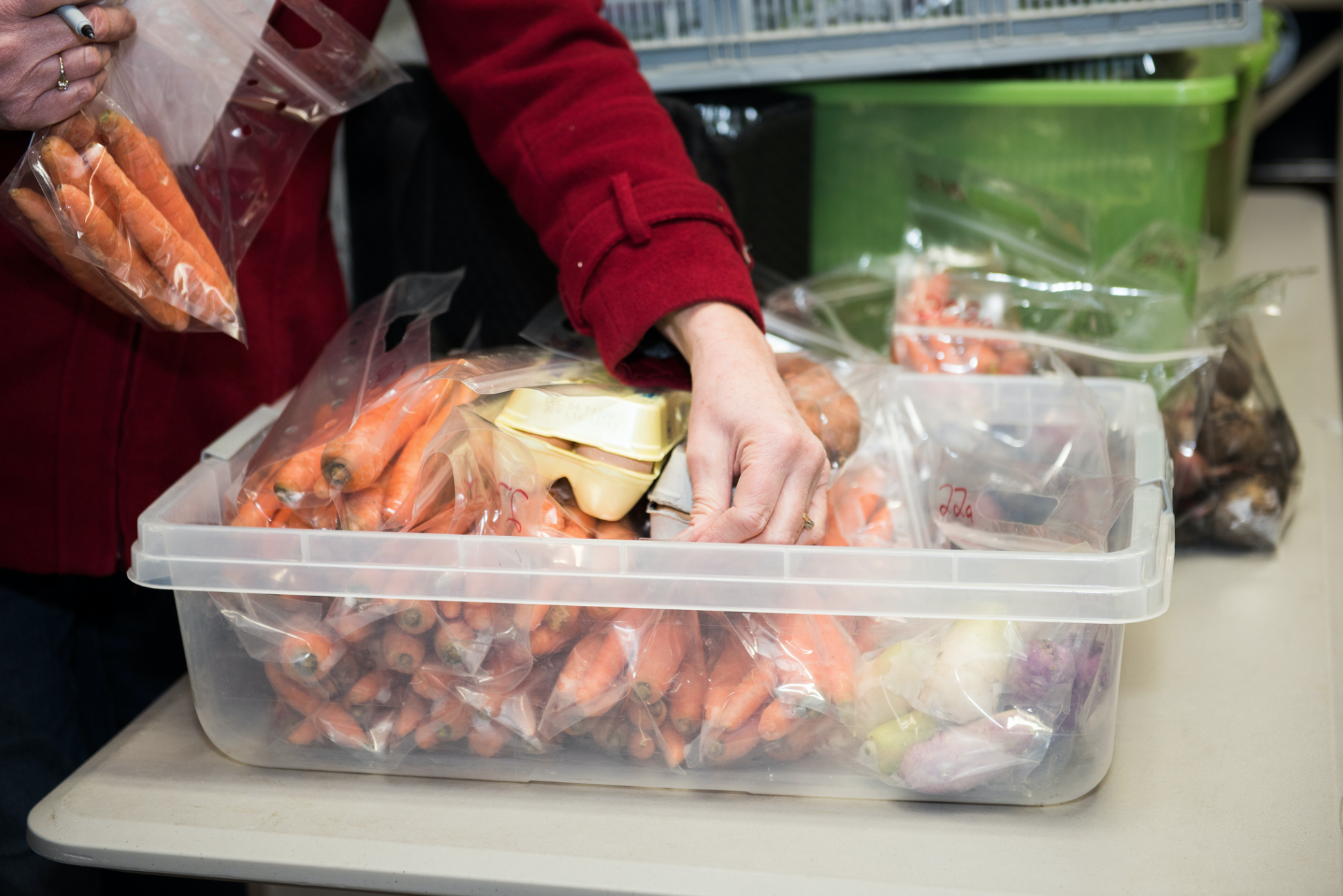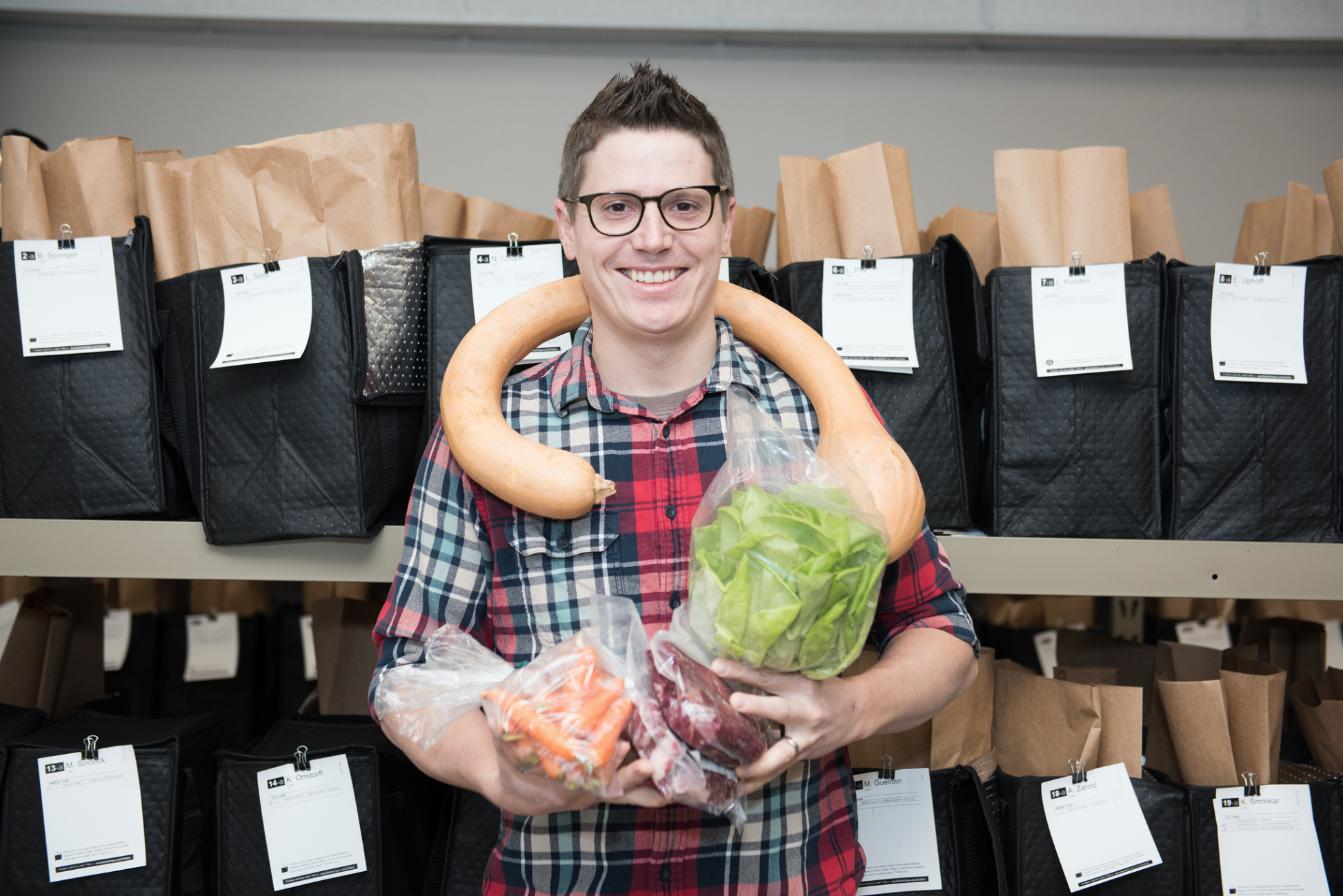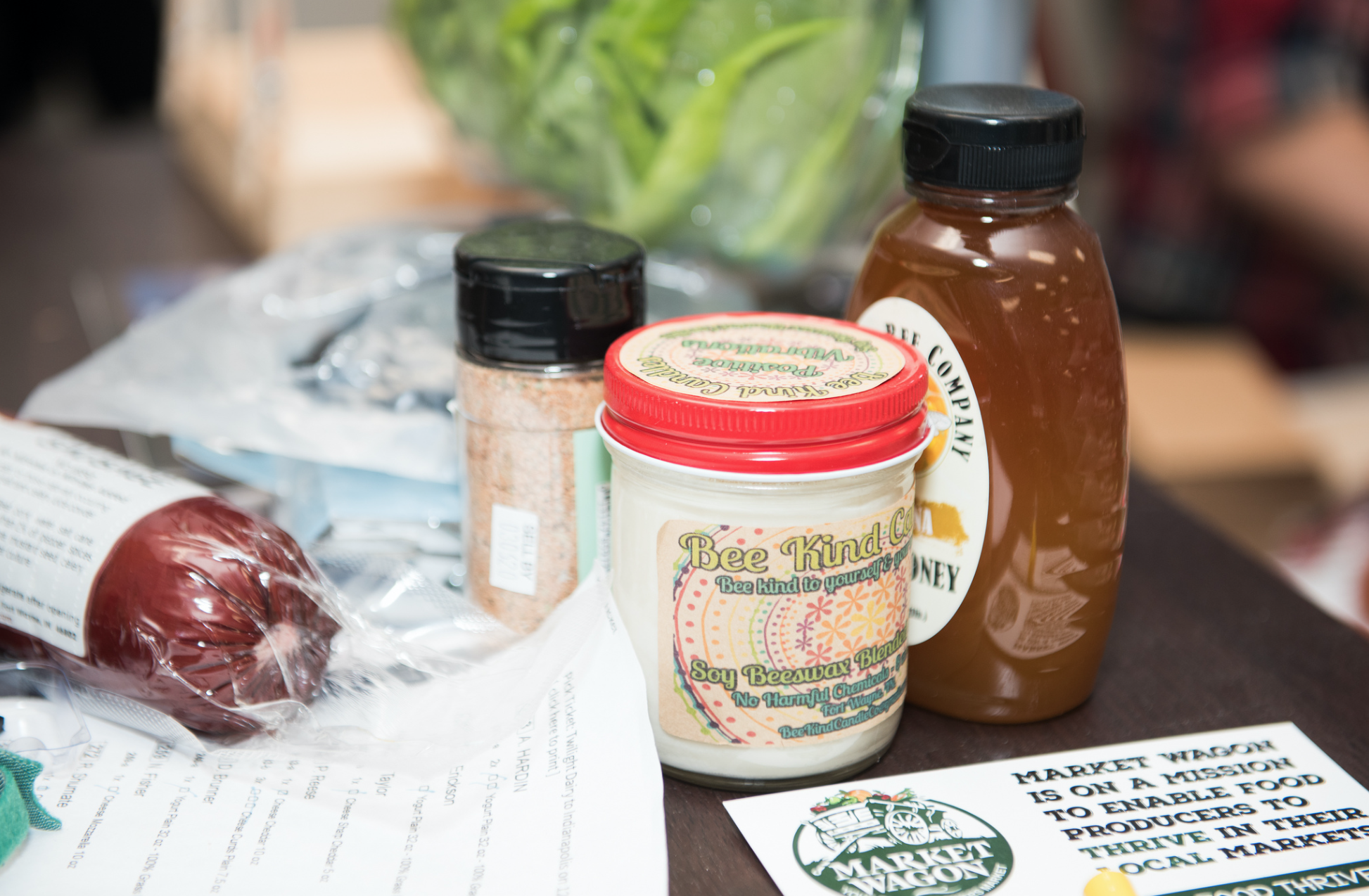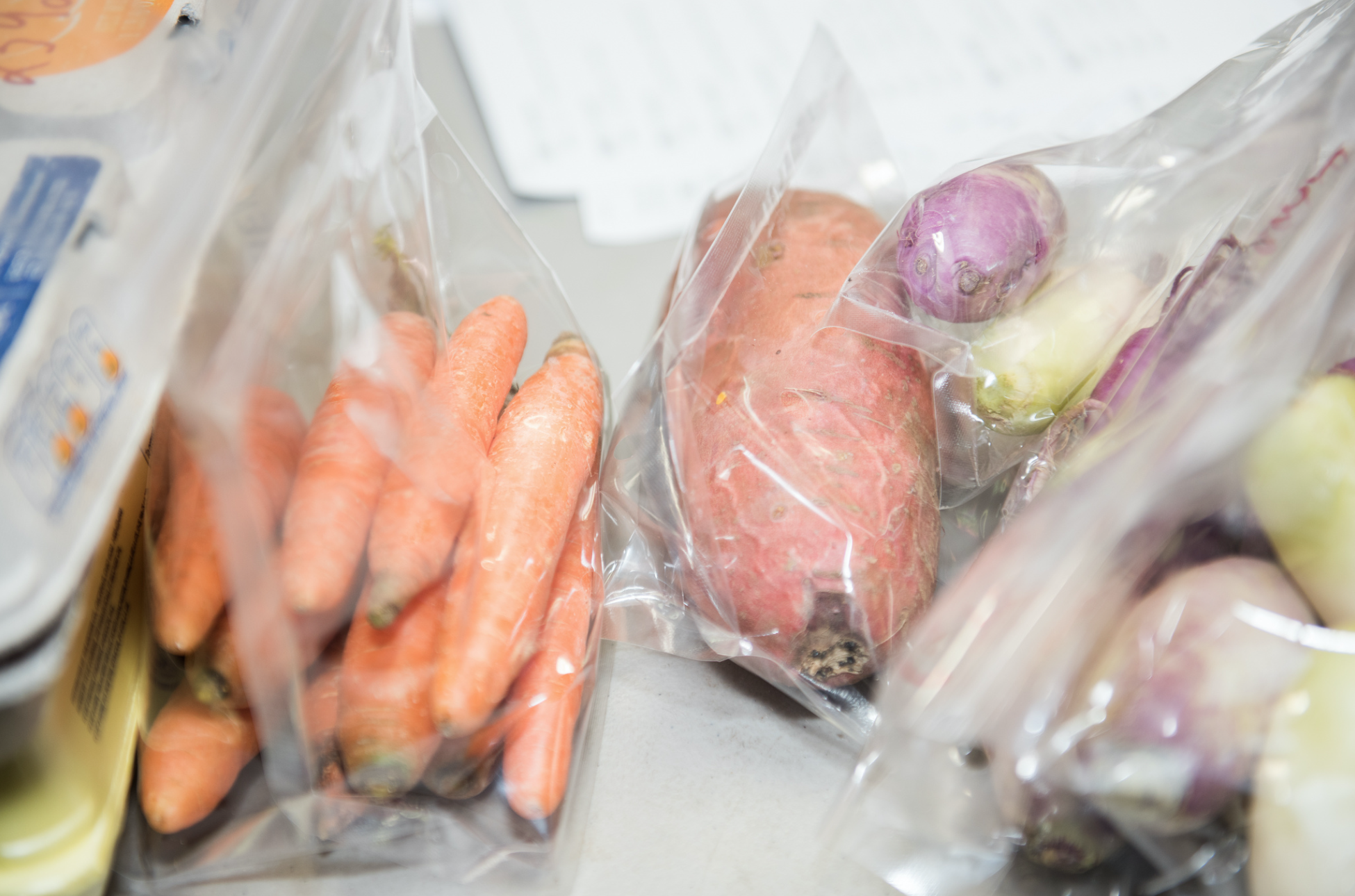Online Farmers Market Offers Products From More than 100 Local Farms & Artisans
Writer / Jon Shoulders
Photographer / Amy Payne
Market Wagon, an online farmers market service, offers products from more than 100 farms, bakeries and artisan businesses. Since its 2016 launch, the company has grown by leaps and bounds in terms of both vendors and customers, but don’t let such a rapid rise in popularity fool you. According to CEO Nick Carter, it is, and always will be, all about small-scale, local farms and artisans.
“This is a business of personal passion for me,” says Carter, a Russiaville native who grew up on a small family farm that he says was nearly lost in the consolidations that marked America’s era of get-big-or-get-out agribusiness. “Enabling farms to bring their products directly to consumers offers a new way to revive the family farm. That’s just what I’ve set out to do.”
Co-founded by Carter and COO/CFO Dan Brunner, Market Wagon affords customers the convenience of online shopping as well as the opportunity to directly support family farms and businesses. The company’s concept is relatively simple, and that very simplicity, along with growing consumer interest in supporting small, local farmers and artisans, is likely why Market Wagon has been able to steadily expand its customer base since launching in January of 2016 in Central Indiana.
Not unlike a traditional farmers market, Market Wagon customers choose the products they want, as well as the farms they want to buy from. Each farm lists everything they have available, describes its growing practices and can even respond on the site directly to shoppers’ questions about its products. No minimum orders or subscriptions are required. Once the customer checks out, Market Wagon gathers the items from the farms and artisans and delivers it either to that customer’s home or the nearest pickup location. Carter says currently 40 percent of Market Wagon customers opt for delivery.
“We’re not just another online food startup, shipping cardboard and styrofoam with a catchy name and an attractive first-time customer discount,” Carter stresses. “We make it a point to be invested in the communities we serve, designing systems that force us to rely on local food suppliers instead of trucking one farm’s product all over the Midwest.”
Market Wagon customers can shop for everything from meats, dairy products and baked goods to produce, sweets, pet treats, soaps and cosmetics, sauces and condiments and much more. Orders placed on or before Tuesdays are available for delivery or pickup by Thursday of that week.
“I think people are responding to this because we’re a tech-based business, but we’re connecting the consumer directly to the farmer that sells the product,” says Ryan Thomas, director of operations and a Westfield resident who joined the company a few months before it launched. “Customers can even go on our website and ask questions directly to the farm if they’re wondering about the product, how to cook it best and things like that.”
The company now has five locations around Indiana and Ohio, currently includes 30 pickup locations around Central Indiana and offers home delivery in 14 counties. A small staff of 10 full-and part-timers, along with about 50 drivers, keeps the company humming along, and Carter feels his biggest challenge so far in expanding Market Wagon’s reach is finding enough suppliers to meet consumer demand.
“We are constantly trying to find more farmers, and often it’s brand new farmers just getting into the business who can supply more and more of those products that the customers are clamoring for. It’s not uncommon to have staples like eggs, lettuce and bread sold out by the order deadline Tuesday night,” says Carter, who in 2013 co-founded Husk, a line of locally-grown frozen sweet corn, green beans, peas and other veggies available in groceries year-round. Carter and his partners sold Husk in 2016.
“Local food is just a new term given to the age-old practice of eating what your environment produces, knowing your farmer and your butcher and your baker and investing not only in the environment but also the community,” Carter adds. “We want the farmer you’re buying from to be someone that you could actually meet and have a conversation within the course of everyday life. Nobody else could say that.”
For additional details including info on becoming a vendor, visit marketwagon.com.









